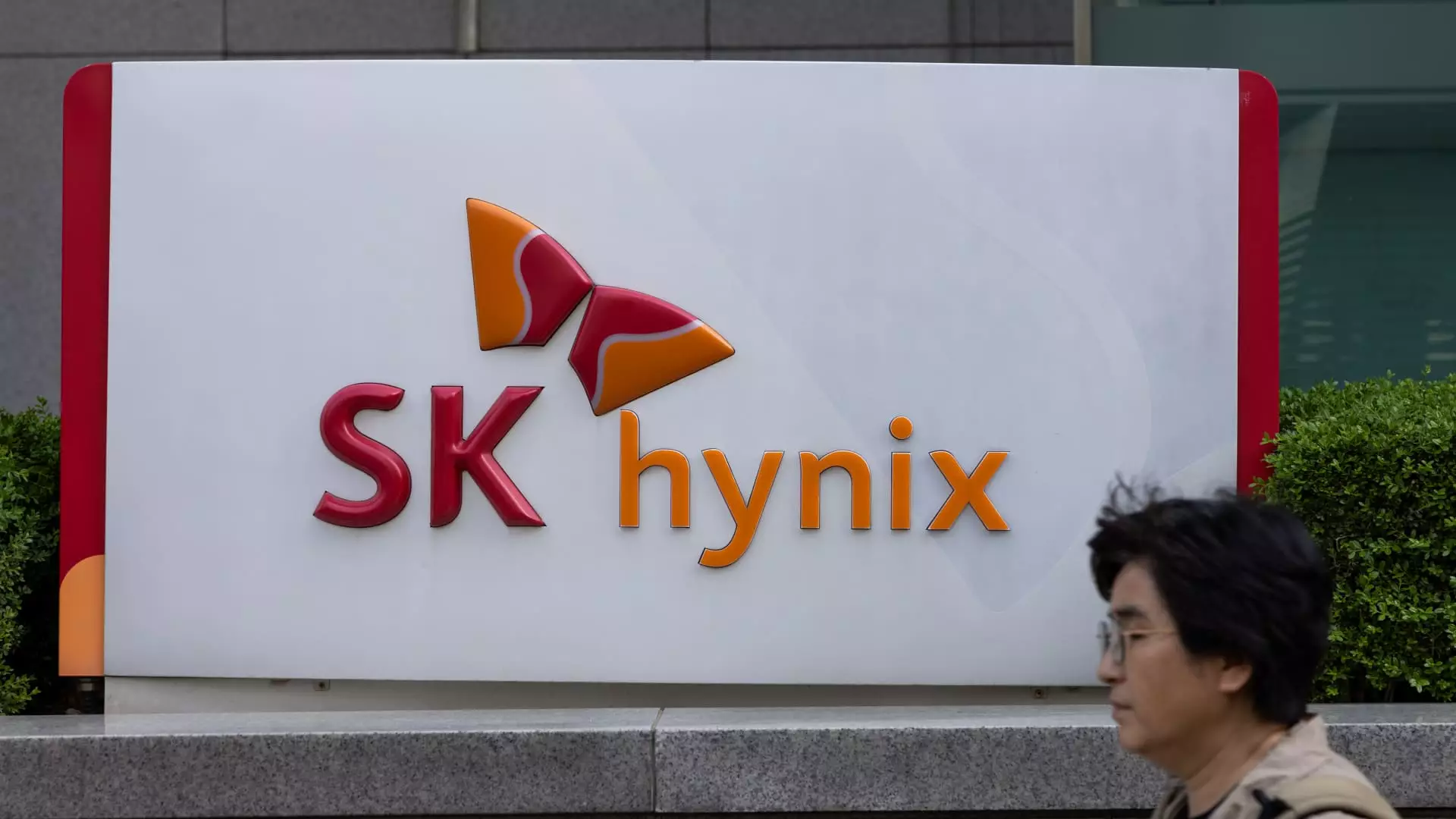SK Hynix, the South Korean memory chipmaker, displayed a remarkable turnaround in the first quarter of this year, reporting a net profit of 1.92 trillion South Korean won ($1.39 billion). This positive outcome marks a stark contrast to the 2.58 trillion won loss incurred in the same period last year. The company faced a string of net losses for five consecutive quarters due to a downturn in the memory chip market, but this recent financial performance signals a return to form.
Revenue for SK Hynix in the first quarter soared to 12.43 trillion won, demonstrating a substantial 144% increase from the previous year. This revenue figure represents the highest recorded since the second quarter of 2022. The company credited this strong performance to an uptick in the sales of AI server products, supported by its expertise in AI memory technology and high-bandwidth memory. Efforts to enhance profitability have also contributed to this impressive revenue growth.
SK Hynix’s success can largely be attributed to the rising demand for AI chipsets, fueled by the increasing popularity of large language models like ChatGPT. These AI models rely heavily on high-performance memory chips to store past conversational details and user preferences for generating humanlike responses. To meet this surging demand for AI memory, SK Hynix plans to ramp up the production of HBM3E, the latest generation of high-bandwidth memory chips. Additionally, the company aims to introduce 32GB Double Data Rate 5 products to reinforce its position in the high-capacity server DRAM market.
Looking ahead, SK Hynix remains optimistic about the steady growth of the overall memory market, driven by the increasing need for AI memory. Moreover, the conventional DRAM market is projected to witness a recovery starting from the second half of 2024. The pandemic-induced surge in consumer electronics demand resulted in stockpiling of memory chips by companies. However, macroeconomic uncertainties such as inflation prompted consumers to scale back on purchases, leading to a decline in demand and prices for memory chips. To address the surplus inventories, SK Hynix, alongside other industry players, reduced production of memory chips.
In line with its commitment to meet the growing demand for AI chips, SK Hynix announced plans to construct a new fab in South Korea, scheduled for completion by November 2025. This facility will focus on producing next-generation DRAM, including HBM, to cater to the expanding market for AI chips. The company’s long-term investment in this project is estimated to exceed 20 trillion won. Furthermore, SK Hynix is collaborating with TSMC, the world’s largest contract chip manufacturer, to develop high-bandwidth memory 4 chips and next-generation packaging technology. Mass production of the HBM4 chips is anticipated to commence in 2026, leveraging TSMC’s advanced processes.
SK Hynix’s impressive financial performance in the first quarter underscores its resilience and adaptability in navigating the volatile memory chip market. By capitalizing on the booming demand for AI chipsets and making strategic investments in production capacity, the company is well-positioned to capitalize on future growth opportunities in the semiconductor industry.

